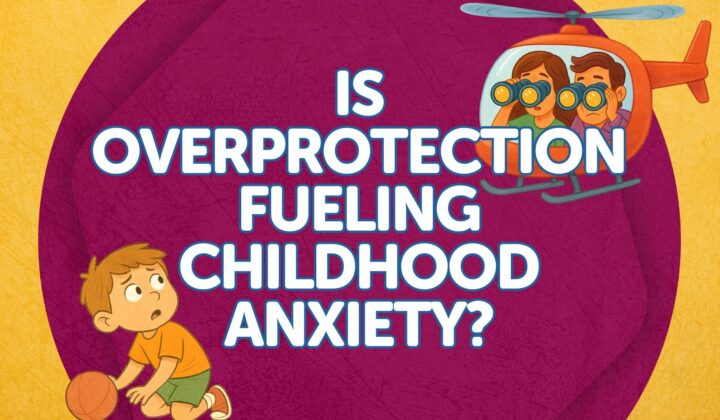Learn more about the journey that led to us equipping kids to carefully evaluate every idea they encounter.
Meet Elizabeth Urbanowicz, the classroom teacher who developed these materials for her students.
Meet members of our team who have contributed to curriculum development.
Hear from real users of the Foundation Curriculum.
Learn what we believe about God, Jesus, Scripture, and more.
Part 2: How Not to Teach the Bible to Our Kids
In our previous post, we explored how asking our children the question, “What does this passage mean to you?” trains them to falsely believe that they bring meaning to the biblical text. In this post, we will continue our series exploring common errors we should avoid when instructing our children in Scripture.
Error Two: Teaching Bible Verses in Isolation
During my freshman year of college, several girls in my dorm hung a poster in their window that read, “Have mercy on me, O God, for men hotly pursue me all day long. Psalm 56:1.” The poster elicited lots of laughs and even made it into an edition of the campus newspaper. I think the girls were hoping their humor would land them dates for the winter ball. I don't know if that happened, but they definitely left a lasting impression.
Reading verses like this in isolation can be an amusing activity. However, many times, we mistakingly instruct our children in Scripture in the same manner. Over the past several years, I have observed numerous adults use one or two isolated Bible verses to teach kids a moralistic lesson or theological truth. While it is possible to glean truth from individual Bible verses, having our children study Scripture in this way establishes unhealthy patterns. Here’s why.
Verses Were Not Written in Isolation
Have you ever considered the fact that the biblical authors did not divide their books into chapters and verses? That’s right. Each author penned his portion of Scripture as one continuous work. Chapter and verse markings were added centuries later. We can be thankful for these helpful divisions. However, when we read or memorize a verse in isolation, we are not interacting with the text as the author initially intended. It would be like receiving a lengthy email from a friend and focusing solely on one isolated sentence in the middle. Chances are, by focusing on that one sentence, you would miss your friend's intended meaning. The same is true of Scripture. Taking one or two verses out of context makes it easy for us to miss the author's original intent.
Context Is Key for Proper Interpretation
To properly understand God's Word, we need to read verses in their context. Take the famous Jeremiah 29:11, for example. Most of us know Jeremiah 29:11 forward and backward. But do we know what Jeremiah 29:10 says? How about 29:12? When we teach our children, “I know the plans I have for you” out of its context, we can easily lead them to believe that God’s plans only involve happiness, peace, and ease. God’s ultimate plan for humanity is for our benefit (Revelation 21:1-4). However, when we read Jeremiah 29:11 in context, we see that God’s plans for His people often involve discipline, hardship, and pain. In Jeremiah 29, God tells the Israelites that His will for them includes seventy years of captivity to a foreign nation. This plan is a far cry from smooth sailing. Do our children understand that when they memorize Jeremiah 29:11 in isolation? Probably not.
Exploring the Context Is Not Difficult
If we want to equip our children to properly understand God's Word, we need to train them to interpret individual verses in their context. Does this mean our children need to memorize whole chapters of Scripture rather than isolated verses? That’s not a bad idea. When I was teaching third grade, I often had my students memorize entire (shorter) chapters of the Bible. But, even when that's not feasible, it’s easy to teach individual verses within their context. All we need to do is read the entire passage with our children and then double back to our focus verse. We can then ask what they learn about that verse from its context.
If we want to equip our children to properly understand and apply Scripture, we must avoid the pitfall of training them to read verses in isolation. The great thing is, God has hard-wired humans with curiosity and a desire to explore. When we allow our children to seek the meaning of a Bible passage within its context, we are fostering that natural curiosity and training them to critically evaluate the passages they read.

About Elizabeth Urbanowicz
Elizabeth Urbanowicz is a follower of Jesus who is passionate about equipping kids to understand the truth of the Christian worldview. Elizabeth holds a B.S. in Elementary Education from Gordon College, an M.S.Ed. in Education from Northern Illinois University, and an M.A. in Christian Apologetics from Biola University. Elizabeth spent the first decade of her professional career teaching elementary students at a Christian school. Elizabeth now works full time on developing comparative worldview and apologetics resources for children. Her goal is to prepare the next generation to be lifelong critical thinkers and, most importantly, lifelong disciples of Jesus.
Related Posts and insights

The Anxious Generation: Is Overprotection Fueling Childhood Anxiety?
Discover why overprotecting children creates anxiety & mental health issues. Learn Biblical strategies to raise confident kids who thrive in God's design.

Elio: A Biblical Worldview Movie Review for Families
Discover 3 biblical conversations to have with your kids after watching Elio, focusing on love, loneliness, and evidence for intelligent design.

How to Train Your Dragon: A Biblical Worldview Movie Review for Families
Discover 3 biblically grounded questions to ask your kids after watching How to Train Your Dragon and turn movie time into discipleship moments.
